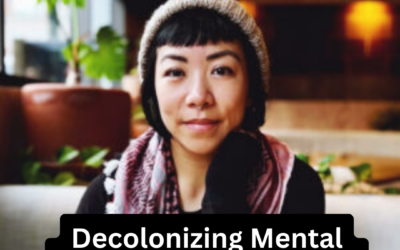Podcast: Play in new window | Download (Duration: 48:11 — 33.1MB)
Subscribe: Apple Podcasts | Spotify | Amazon Music
Learning about relational science and applied attachment theory can help you keep your cool. Stay updated in this episode learning latest about the science of threat.
This episode on the neurobiology of threat is a warm up to next time, when we air the interview with the amygdala expert, Dr. Joseph Ladoux.
Everyone responds to threat uniquely and each situation is different of course. Ann & Sue discuss recent findings and how to apply the science to understanding how your brain works when it senses danger. Inspired by a discussion with Dr. Joseph Ledoux (interview to be published in the next episode #174) – in today's episode, Ann and Sue are covering their take on the latest research related to fear and threat in humans.

Michelle Bobb-Parris/Getty Images
Ann and Sue blend their own personal experiences and knowledge of people, mistakes, dysregulation and basic relational neuroscience to help improve your relationships and integrate healing & change within the body. Follow along as they take a deeper dive into Ledoux's research and break down his experiment measuring rats' fear in moments of threat and how that applies to human responses in similar instances. They also cover the misconceptions about how the amygdala is often perceived as the “fear center” of the body, and why it's important beyond caring about neuroanatomy.
As always, they also share their own not-pretty version of figuring this stuff out in real life. (Transcript provided below)
We are proud to offer this library of episodes free to the world and accessible. In order to help us do that, please join our Therapist Uncensored online community!
You'll get deeper dives into topics and extra episodes, an ad-free feed, Q&A sessions, discounts on stuff we may produce, unique study opportunities, and access to your like-minded peers!
Time Stamps for Neurobiology of Threat:
3:24 – Discussion about Sue's interview with Joseph Ledoux
4:23 – Explanation of Joseph Ledoux's rat experiment
15:12 – Threat responses are not amoral
29:01 – Ledoux's implicit narrative
29:54 – The amygdala is not the “fear center” of the body
42:32 – The “third anchor”, memory consolidation
45:00 – Updating your own narrative
Episode Resources for Neurobiology of Threat
Joseph Ledoux's Article – “The Emotional Brain, Fear, and the Amygdala”
Elena Paci, Charlotte Lawrenson, Jasmine Pickford, Robert A.R. Drake, Bridget M. Lumb, Richard Apps. “Cerebellar Modulation of Memory Encoding in the Periaqueductal Grey and Fear Behaviour.” eLife (First published: March 15, 2022) DOI: 10.7554/eLife.76278
“Discovery of novel brain fear mechanisms offers target for anxiety-reducing drugs” – University of Bristol, March 2022
View the Transcript Here!
More like this from Therapist Uncensored:
Whole Brain Living, Psychology + Neuroanatomy + Spirit with Dr. Jill Bolte-Taylor (164)














